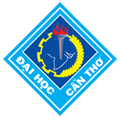From November 3 to 6, 2025, Can Tho University (CTU), in collaboration with national and international partners, hosted “The International Symposium on Organic Farming and Sustainable Production 2025”. The program was jointly supported by the Federal Ministry of Research, Technology, and Space of Germany and the Vietnam Ministry of Science and Technology, within the framework of the bilateral protocol project titled “Research and Application of Scientific, Technological, and Market-Based Solutions for Organic Rice Production in the Mekong Delta”—known as the OrganoRice Project.


The symposium took place at the Research Laboratory Complex (RLC), CTU
The symposium was honored to welcome Dr. Roland Keil - Federal Ministry of Research, Technology, and Space of Germany; Assoc. Prof. Dr. Lutz Weihermüller - Forschungszentrum Jülich (Germany), who also serves as the Coordinator of the OrganoRice Project and the Symposium on Organic Farming and Sustainable Production 2025; as well as representatives from provincial Departments of Agriculture and Environment from the Mekong Delta region. Representing CTU were Prof. Dr. Tran Ngoc Hai - Vice Rector; leaders of the College of Agriculture; members of the Organizing Committee; and faculty members and students. The symposium brought together over 200 experts, scientists, and businesses from Vietnam and abroad to discuss strategic solutions to promote sustainable organic agricultural development in the Mekong Delta.
The main objectives of the symposium were to share and discuss research findings and field models from the OrganoRice project; gather feedback from local authorities, scientists, farmers, and policymakers to refine and expand effective models; exchange technical, policy, and market-based solutions to support organic agricultural development; and strengthen the linkage between academia - policy - industry at the national and international levels. The symposium also contributed to Vietnam’s national goal of developing 1 million hectares of high-quality, low-emission rice in the Mekong Delta by 2030.
In his opening remarks, Prof. Dr. Tran Ngoc Hai emphasized that organic agriculture was not merely a farming method but an art and a vision of harmony between humans and nature. It represented a shared responsibility to restore soil fertility, protect the environment, preserve biodiversity and natural resources, and ensure food safety for generations to come. He noted that, amid increasing global challenges such as climate change, resource scarcity, and market pressures, the need for sustainable agricultural solutions had become more urgent than ever. The Vice Rector of CTU also highlighted that, throughout nearly six decades of establishment and development, CTU had remained steadfast in fulfilling its mission of education, scientific research, and community service—particularly in advancing sustainable development in the Mekong Delta region. Among its key areas, agriculture had consistently been a traditional focus and a core strength of the university’s academic and research mission.

Prof. Dr. Tran Ngoc Hai, in his opening remarks

Assoc. Prof. Dr. Lutz Weihermüller welcomed the delegates to the symposium and emphasized that the event served not only as a venue for sharing scientific research outcomes but also as a meaningful opportunity for nations to collaborate in seeking sustainable solutions for organic agricultural development

The first working session, themed “Policy, stakeholders, marketing and economic perspectives”, was co-chaired by Dr. Jack O’Conner (United Nations University - Institute for Environment and Human Security in Bonn, Germany) and Assoc. Prof. Dr. Khong Tien Dung (School of Economics, CTU, Vietnam)

The speakers delivered their presentations during the working session
During this session, speakers presented key papers focusing on socio-economic opportunities and challenges in organic agriculture development; innovations in soil health assessment methods; legal frameworks and certification standards for organic products; and economic, technical, and market factors influencing organic rice cultivation in the Mekong Delta. The presentations provided multidimensional insights and offered valuable policy directions to advance organic agriculture in the region that is science-based, technology-enabled, and environmentally sustainable.

Delegates engaged in thoughtful discussions, posed questions, and contributed valuable insights throughout the symposium
Throughout the three days, numerous research papers and practical reports were presented. These focused on core themes such as organic fertilizer production and application, biological pest and disease control, irrigation solutions, water management, and pollution mitigation in sustainable agriculture. Other key topics included crop breeding and trials aligned with organic standards, as well as market development, certification, and product traceability. In addition, participants engaged in in-depth discussions on policies supporting the transition to organic farming and the importance of multi-stakeholder participation. They also analyzed the economic value, biodiversity, and ecosystem functions of organic production, with the aim of developing a low-emission, sustainable agricultural model for the Mekong Delta.
The symposium served not only as a scientific forum, but also as a platform for policy dialogue, business engagement, and community collaboration—laying the groundwork for joint research initiatives, technology commercialization, and the advancement of the four-party linkage model involving government, scientists, enterprises, and farmers, in pursuit of the shared goal of sustainable organic agriculture development.

Commemorative photo
As a pioneering university in bridging scientific knowledge with real-world agricultural practices, CTU played a leading role in advancing initiatives that promote green, organic, and climate-resilient agriculture. Through this symposium, CTU facilitated in-depth discussions to address critical bottlenecks in the organic agriculture value chain. These included challenges in market access, post-harvest handling, traceability, and product certification. The College of Agriculture - CTU, along with experts, policymakers, and businesses, also proposed a series of breakthrough solutions, technologies, and partnership models to build a sustainable and highly competitive organic agriculture sector. The International Symposium on Organic Farming and Sustainable Production 2025 truly marked a significant milestone in fostering innovation, enhancing interdisciplinary collaboration, and expanding international networks for the sustainable development of organic agriculture in the Mekong Delta and beyond.
(Website Editorial Board)



 Undergraduate
Undergraduate 